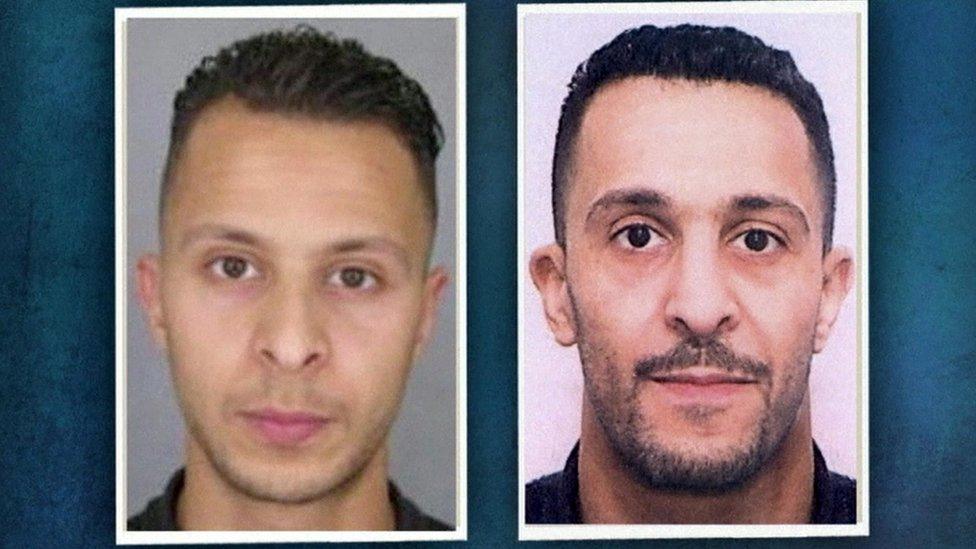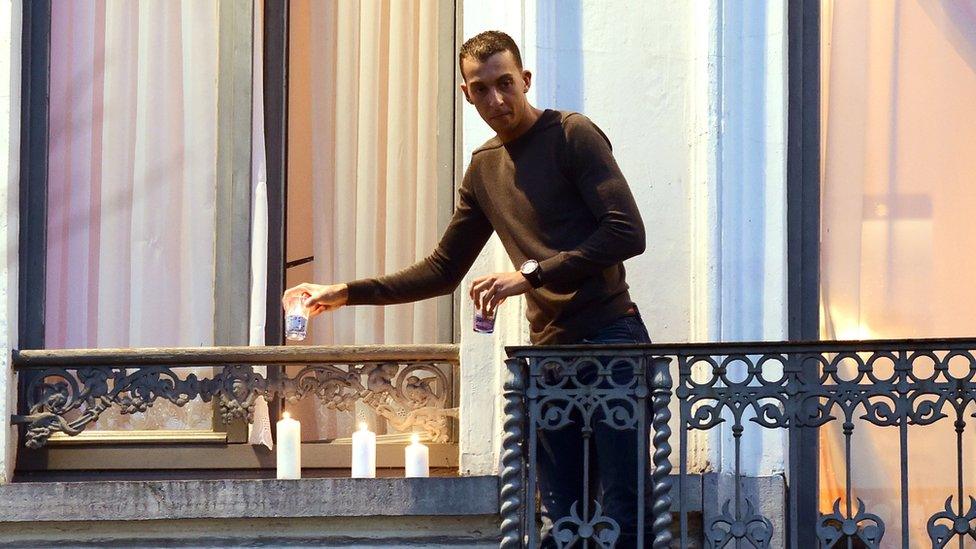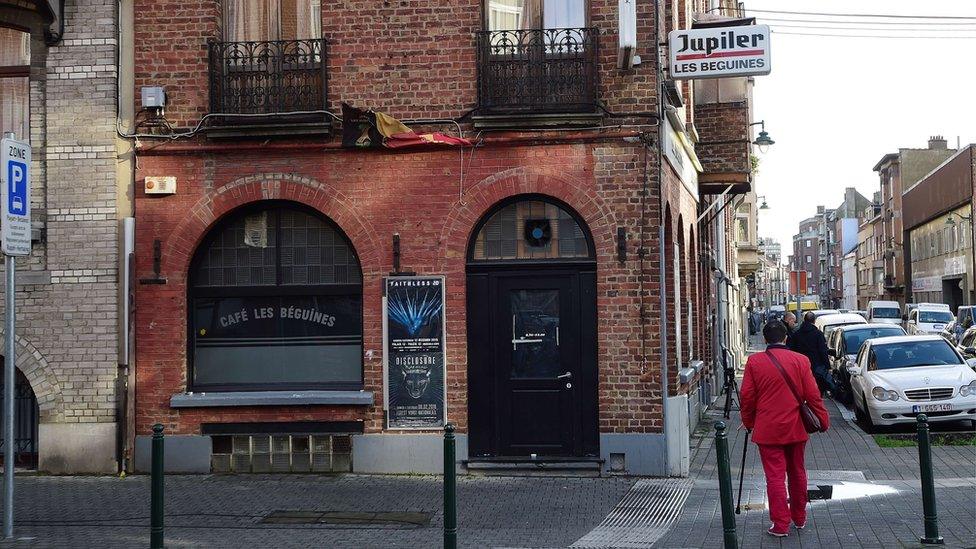Paris attacks: Abdeslam brothers 'were manipulated, not radicalised'
- Published
Mohammed Abdeslam, speaking to RTBF: "We want Salah to surrender"
The brother of two men implicated in the Paris attacks says he did not see any suspicious changes in their behaviour. Mohamed Abdeslam told a journalist from Belgian broadcaster RTBF that his brothers had become more religious recently - but this did not mean they were radicalised.
Salah Abdeslam is the focus of a huge manhunt over the attacks in Paris on 13 November. Brahim Abdeslam blew himself up at a cafe during the attacks, which in total left 129 people dead and more than 350 injured. Here is a transcript of the interview with Mohamed Abdeslam.
RTBF journalist [in French]: Good morning, Mohamed Abdeslam. Media from all over the world are trying to get your interview… Why do you want to express yourself?"
Mr Abdeslam [in French]: I wanted to express myself in front of the press, so that people might understand that, beyond the Abdeslam family, there was more than what you can see on TV. My brothers do not represent what we all are.
Journalist: When did you see your two brothers for the last time?
Mr Abdeslam: I saw my two brothers for the last time, a little bit before their departure.
Journalist: A few days before?
Mr Abdeslam: A few days before, it was probably two or three days before their departure.
Journalist: No sign? Nothing?
Mr Abdeslam: No, no sign, no farewells, no goodbyes. That's it.

Mohamed Abdeslam says he was close to his brothers, Salah (left) and Brahim

Mohamed Abdeslam lit candles at the family home in Brussels during a vigil for the Paris dead
Journalist: You were arrested on Saturday, the 14th, questioned, detained during 36 hours. The judge released you without charging you with anything. She believed you when you told her you didn't know anything. Can you understand that it's sometimes quite difficult to believe that you didn't see or know anything?
Mr Abdeslam: My release, beyond the fact that the judge believed me, wasn't only based on my statements. I was able to bring elements that could prove that I wasn't in Paris during the attacks. I gave my mobile phone and some encrypted objects. I had nothing to hide, and I guess that the judge decided to release me on this basis.
Journalist: Were you close to your brothers? Did they talk to you?
Mr Abdeslam: Yes, of course, my brothers and I were close. I was living with them, we had standard conversations between brothers.
Journalist: And you say that you didn't see anything coming, that you never had any suspicion. A slight change six months ago, as you told me.
Mr Abdeslam: Yes, a slight change, indeed. But this change wasn't worrying, not for me, nor for my family. When your brother begins to pray, it's not necessarily a radicalisation. When your brother tells you he's stopped drinking, it's not a radical change. These are people who, for us, just wanted to calm down and show more respect in their practice of religion.
Journalist: And apparently, they became radicalised.

A Brussels bar owned by Brahim Abdeslam lies shuttered
Mr Abdeslam: They became radicalised. Personally, I wouldn't use this term. Nowadays, a lot of young people can be easily influenced. I deeply believe that my brothers weren't radicalised. That's the reason why we didn't see anything. I rather feel like my brothers were manipulated.
Journalist: Salah Abdeslam was being watched by Belgian state security, Brahim probably tried to go to Syria. You weren't aware of this?
Mr Abdeslam: Salah was being watched by Belgian state security, but we didn't know that and we didn't know either that Brahim had tried to go to Syria. He's apparently been interviewed by police services on that subject, and we were never told about what he said.
Journalist: Brahim is dead, he blew himself up in a cafe in Paris. Salah has disappeared from the radar, and investigators are wondering if he didn't change his mind at the very last moment, before doing anything. Do you hope he didn't kill anyone?
Mr Abdeslam: It's more than my hope, it's what I believe. Salah is someone who is very clever. I think that, at the last minute, Salah decided to turn back. Maybe he saw or heard something that he didn't expect. And he decided not to see the plan through. I have to remind you that today, we are not aware of the latest elements of the investigation, but we do not know yet whether Salah did kill people or not, we do not know if Salah was at the scene of any of the attacks.
Journalist: You called on him to surrender. And he didn't do so, until now. What would you like to tell him, today?
Mr Abdeslam: I'd like to tell him that we aren't afraid. And that's why I'm expressing myself in front of the press. We want Salah to surrender, simply for…
Journalist: What does he have to lose? Why would he surrender?
Mr Abdeslam: First, he might bring us answers we're waiting for. Us, his own family, but also the victims' families, and all the others who are watching us. We'd rather see Salah in jail than in a cemetery.
Journalist: How are you going to live now? You'll always be 'the brother of...'.
Mr Abdeslam: Yes, indeed, I'll always be "the brother of". I hope that this dark story will calm down. Journalists are ringing our bell almost every day to get some information or an interview. It's heavy, it's exhausting. I will always be "the brother of…", yes, but I hope people will be smart enough to understand that I'm not only "the brother of…", that we're not only "the family of…". And that beyond that, there are respectful and different people.